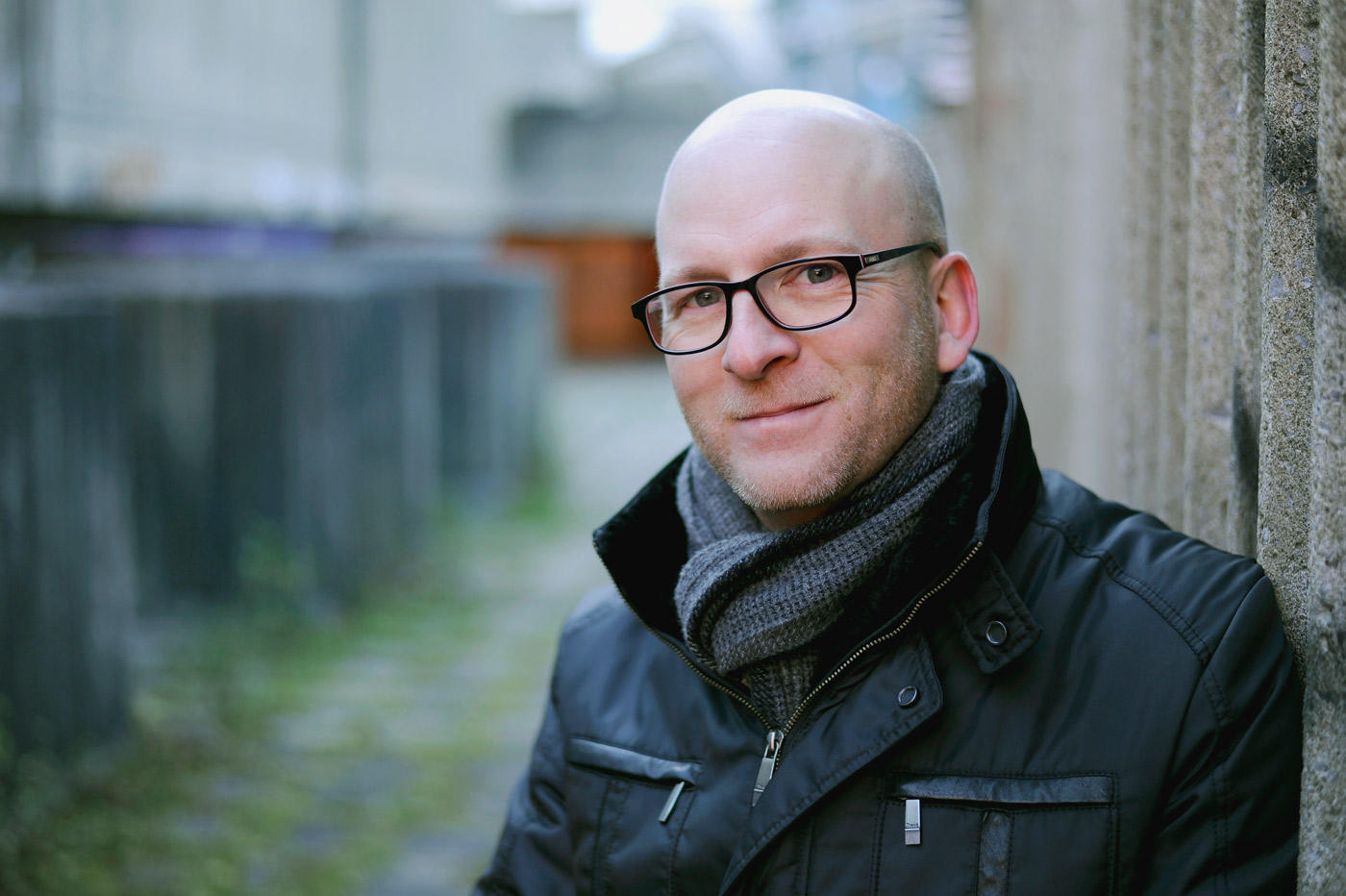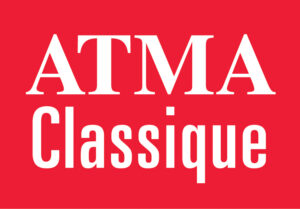
Q&A with MATHIEU LUSSIER
Conductor, composer, and bassoonist Mathieu Lussier is a versatile musician with a commanding grasp of early repertoire. He is increasingly in demand as a guest conductor, having recently made his conducting debuts with several orchestras including the Montreal Symphony Orchestra. Appointed Associate Conductor of Les Violons du Roy in 2014, Lussier has directed the ensemble in more than 80 concerts throughout Canada, Mexico, and the United States. He was Artistic Director of the Lamèque International Baroque Music Festival from 2008 to 2014, and is an Assistant Professor at the Université de Montréal.
Mathieu Lussier leads Les Violons du Roy in Vivaldi Concertos, a new recording of quintessential works selected from the composer’s 500 concertos for various instruments, available on ATMA Classique starting March 11, 2016
Do you come from a musical family?
Not really, other than a great-aunt (a nun) who played the organ. But my father and grandfather and many members of my family were music lovers. There was a lot of classical music playing at home, in the car, as my parents were both avid music listeners, with different tastes, however.
Your childhood dream was to become …
… an archeologist. I was always fascinated by ancient civilizations and almost went to study to become an historian.
Composer, conductor, bassoonist: how do you juggle these activities?
For me, they are all part of a whole. I am a musician. I play the bassoon, but the bassoon does not allow me to do everything I want and like. In a way, I compare myself to the 18th century musicians who were doing all this. I like my schedule to be loaded, but varied. I am not passionate about the bassoon, but it is my instrument; composing is more of a hobby than something crucial for me; and conducting is an immense privilege after having played in orchestras for 25 years. Now I also teach at the Université de Montréal, and it gives me great joy. I take one day at the time and if the day is too crowded, I split it into several chunks.
Is it true that your choice of the bassoon as your main instrument happened somewhat accidentally?
Totally! I wanted to go to Pierre-Laporte high school, which at the time had an amazing music program.
I played piano and was not sure that I would get in, as there was an audition process and many applicants, especially for piano. The posters said they were looking for bassoon and French horn — instruments that were unknown to me. So I put bassoon down as my second choice and horn as my third choice to be sure I’d be accepted. I don’t think they even listened to my piano audition, as I was the first person to audition for bassoon since the program began!
Why do you believe the bassoon needs to be “passionately promoted”?
Because it is not known for what it can be or do. Most people feel that they don’t know the bassoon, or if they do, they think it’s only used to depict grotesque, funny, or silly musical images. It is much more than that: It’s noble and very expressive, versatile and very sensual!
Who was your most important mentor?
I would name three:
One: Louis Lavigueur, choral and orchestral conductor. I studied with him at Pierre-Laporte high school and at the Conservatoire. He gave encouraged me, opened doors for me when I need help, and also (figurative) slaps on the face when I started taking things for granted.
Two: Joël Thiffault, founder and conductor of the Montreal Baroque Orchestra. He is the most amazing musician I have ever met. He opened new horizons, passed on his love of baroque music, allowed me to learn period instruments, and pushed me and my colleagues like no one has ever done, before or since. Three: Normand Forget, the oboe player from my quintet Pentaèdre. A great musician, a great mind, always asking questions about music, phrasing, stage presence. The way I do music now, the way I see my profession, owes a lot to him.
Tell us how you began your professional conducting career.
I had been working with Claire Guimond, Artistic Director of Arion Baroque Orchestra for couple seasons, helping her to introduce new ideas and set-up programs that eventually someone else would be invited to conduct. When I started working on an all-Fasch program, I was telling her how excited I was about it and all the ideas I had for that program, she looked at me, smiled, and asked, “would you like to conduct it?” This was one of the greatest gift I have ever received.
After that, I started to tour with Arion as a soloist and would introduce the programs to various audiences. But you can’t really be the MC when you are sitting at the back of the orchestra with your bassoon. And you don’t get to play solos all the time, so in my role as Artistic Director at Lamèque International Baroque Music Festival (also thanks to Claire), I conceived and planned a whole season and realized that since I was handling all the steps, from the initial concept to the stage, I should complete the last mile myself and start conducting!
Describe your experience conducting the Orchestra Symphonique de Montreal earlier this season.
It’s hard for me since I can’t even say it was a dream come true, since I never even allowed myself to think that one day I would be on the podium of that great orchestra! Funny, I remembered very clearly the first advice from a colleague, offered in 1994, the first time I played with the orchestra as a freelancer: “Raise your stand, never look up, stay with us, and everything will go smoothly!” I decided to tell the story at the first rehearsal and we all had a good laugh!
Fellow bassoonist Nadina Mackie-Jackson called you “the Patron Saint of Bassoonists.” Is there a story behind how earned this “honourary” title?
Well … this is hard for me to say … Nadina encouraged me to pursue composition when I first started to write music. Since then I have written, mainly for her, close to 50 works, most of which include bassoon. I think it gives bassoon players around the world something to play that is gratifying, and that fits how we see the bassoon. When I wrote my first piece, bassango (a bassoon quartet, dark and slow, in a tango mood), the most well-known bassoon quartet was called Pigs, by Alan Ridout! There was room to enhance our repertoire with expressive, and perhaps somewhat suaver works!
We understand you are famous for your grilled cheese sandwiches … any other non-musical talents you’d like to share?
I, very modestly, make the best grilled cheese sandwiches in the world. So logically, I had to develop compatible talents. So I would say that I like to host dinners, and recently got a wonderful set of English porcelain from the early 1900s.
What would you like the world to know about Mathieu Lussier?
That I have two wonderful and gifted children (Thomas, 19 and Adèle, 16). I am so proud of them. Watching your children become adults is the most gratifying thing that you can experience.
